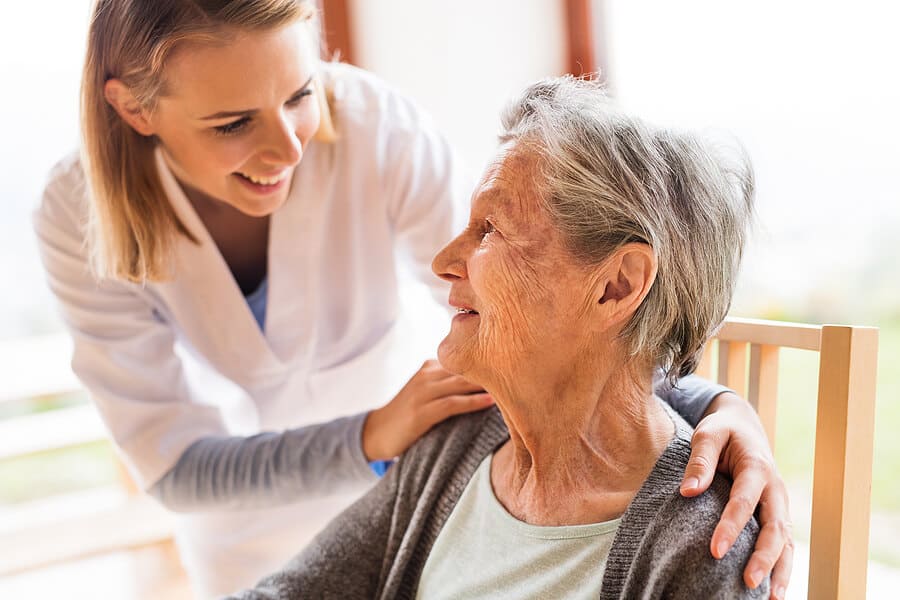- Everyday Sounds That May Be Making Your Tinnitus Worse - May 7, 2025
- The Hidden Dangers of Everyday Noise and How to Stay Safe - April 9, 2025
- World Hearing Day Serves as a Reminder to Prioritize Hearing Aid Maintenance - March 3, 2025
In the realm of hearing health, we often associate hearing loss with communication challenges and diminished quality of life. However, there’s a crucial aspect of hearing loss that is often overlooked but has far-reaching implications for overall well-being: its connection to falls and accidents. As an audiologist, I’m committed to shedding light on this vital issue, exploring the latest advancements in hearing loss prevention, diagnosis, and management, and emphasizing the profound impact early detection and intervention can have on preventing falls and accidents.
The Hidden Link: Hearing Loss and Falls
Hearing is one of our primary senses, enabling us to perceive our environment and respond to potential hazards. Recent research has unveiled a compelling connection between untreated hearing loss and an increased risk of falls and accidents, particularly among older adults. Understanding this link is essential for both patients and healthcare professionals.
Recent Research Findings
Studies conducted before my knowledge cutoff date in September 2021 have consistently demonstrated the connection between hearing loss and an elevated risk of falls. A report published in JAMA Internal Medicine found that individuals with untreated hearing loss had a 30-40% greater risk of experiencing a fall compared to those with normal hearing. This statistic highlights the critical importance of addressing hearing impairment as a preventive measure for falls and accidents.
The Mechanism Behind the Connection
Several factors contribute to the relationship between hearing loss and falls:
Auditory Cues:
Our ability to hear plays a pivotal role in our balance and spatial awareness. Auditory cues, such as footsteps, approaching vehicles, or warnings, provide crucial information that helps us navigate our surroundings safely.
Cognitive Load:
Hearing loss places an added cognitive load on individuals as they strive to compensate for their hearing impairment. This increased cognitive effort can divert attention away from maintaining balance and situational awareness.
Social Isolation:
Hearing loss often leads to social withdrawal, limiting interaction with friends and family. This isolation can result in reduced physical activity and muscle strength, which are vital for maintaining balance and preventing falls.
Advancements in Hearing Loss Prevention and Diagnosis
The audiology field has made significant strides in hearing loss prevention and diagnosis in recent years, offering hope to individuals at risk of falls and accidents.
Early Detection:
Early detection of hearing loss is paramount. Routine hearing screenings, especially for older adults, can help identify hearing impairment in its early stages. This allows for timely intervention and reduces the risk of falls.
Technological Advancements:
Hearing aid technology has evolved dramatically. Modern hearing aids are smaller, more discreet, and equipped with advanced features like noise reduction and Bluetooth connectivity. These improvements enhance not only hearing but also overall safety.
Fall Detection Devices:
Innovative devices, such as hearing aids with built-in fall detection capabilities, are emerging. These devices can automatically detect falls and send alerts to designated contacts, ensuring prompt assistance in case of an accident.
The Compassionate Approach
As hearing professionals, our mission extends beyond providing hearing solutions. It includes fostering understanding and empathy for those facing hearing challenges. We must encourage individuals to seek help for their hearing loss and reassure them that it is a common and treatable condition. Here are some compassionate steps we can take:
Encourage Open Dialogue:
Create a safe and non-judgmental environment for patients to discuss their hearing concerns. Address their fears and misconceptions about hearing aids and emphasize the positive impact on their overall well-being.
Educate Patients:
Empower patients with knowledge about the link between hearing loss and falls. Share insights on the latest research findings and explain how treating hearing loss can significantly reduce their risk of accidents.
Individualized Care:
Tailor hearing solutions to the unique needs of each patient. Consider their lifestyle, preferences, and specific hearing challenges to ensure they receive the most effective intervention.
Looking to the Future
The future of hearing health holds exciting possibilities, including potential interventions that may further reduce the risk of falls and accidents:
Auditory Augmentation:
Advances in augmented reality (AR) and wearable technology may lead to auditory augmentation systems that provide real-time environmental information through wearable devices, aiding individuals in navigation and safety.
Brain-Computer Interfaces (BCIs):
BCIs that can interpret auditory signals from the brain may offer revolutionary solutions for individuals with severe hearing loss, restoring their ability to perceive sound and maintain balance.
As hearing professionals, we are at the forefront of improving the lives of those with hearing loss. It is our duty to inform our patients about the profound connection between hearing loss and falls, and the importance of early detection and intervention. By embracing the latest advancements in hearing loss prevention, diagnosis, and management, we can empower our patients to lead safer, more fulfilling lives. Together, we can break the chain that links hearing loss to falls and accidents, ensuring a brighter and safer future for all.

